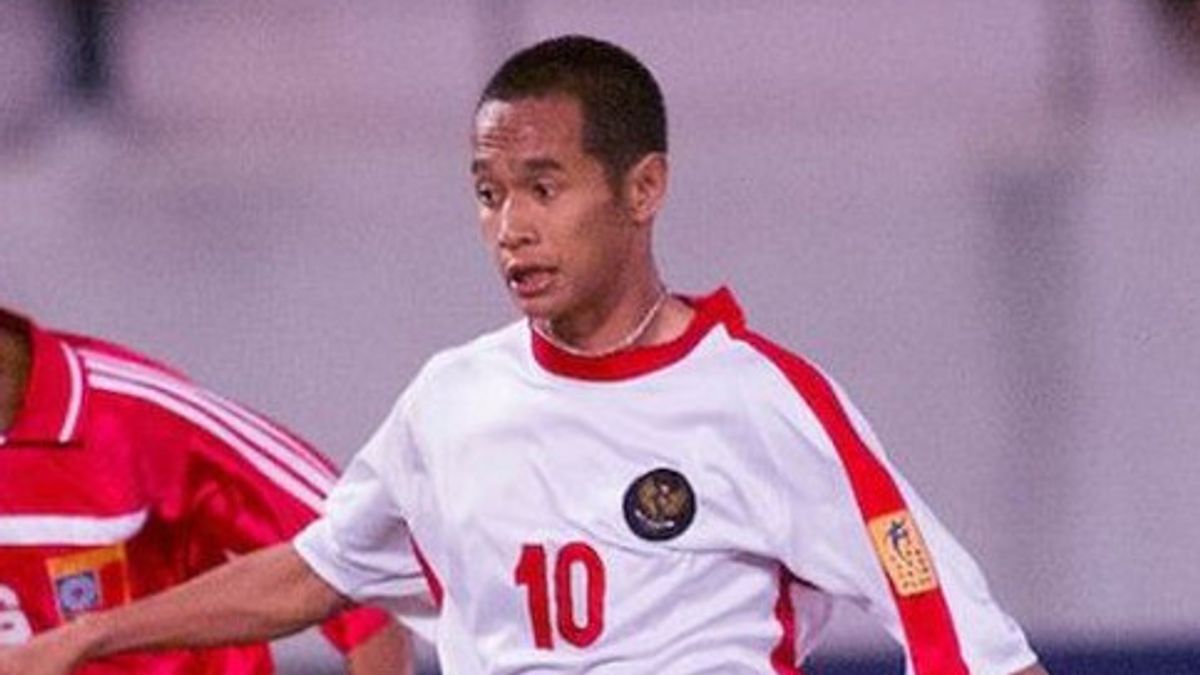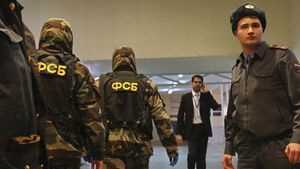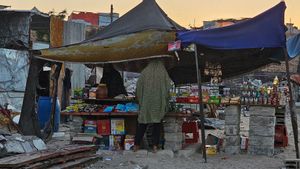JAKARTA - The first AFF Cup was held in Singapore. Indonesia had to lift its suitcase without a trophy. At that time the AFF was still called the Tiger Cup.
Indonesia has a big role in football in the Southeast Asia (ASEAN) region. Through the All-Indonesian Football Association (PSSI), Indonesia and six other countries played a role in the birth of the Southeast Asian Football Federation (AFF) in 1984.
Together with Malaysia, the Philippines, Brunei Darussalam, Singapore and Thailand, Indonesia has co-founded the AFF as the organization that oversees all football associations in Southeast Asia. The AFF has the function of perpetuating the development of football in Southeast Asia.
In addition, AFF was also established with the aim that countries in Southeast Asia can compete with strong football teams from all corners of the world. The chairman of PSSI for the 1983-1991 period, Marshal Madya (ret.) Kardono was also elected as the first president of the AFF.
He has the full support of the parent Asian Football Confederation (AFC). However, the agenda is only to encourage competition at the club level. The focus on competition for Southeast Asian countries has not been the focus.
It was only in 1996 or 12 years after the formation of the AFF, that a competition between ASEAN countries was held. The competition was named the Tiger Cup. As the name of the liquor company which is the main sponsor.
“AFF or Asean Football Federation is part of the Asian Football Confederation (AFC), which consists of the countries of the Southeast Asian region. Asean stands for Association of South East Asian Nations. AFF was founded in 1984 by Thailand, the Philippines, Brunei, Singapore, Malaysia, Indonesia, Vietnam, Cambodia, Laos and Myanmar.”
“In 1996, the AFF organized the first ASEAN Football Championship (then called the Tiger Cup), and since then it has been held regularly every two years. Currently, the AFF is still growing with the joining of Timor Leste in 2004 and Australia, becoming an invitation after joining the AFC on January 1, 2006 (but until now the opportunity to participate in the AFF Cup has not been taken)," said Lutfi Avianto in the book Knowing Football. Ball (2012).
Indonesia is mighty in the group stage
The initiation of the tournament for ASEAN countries named Tiger Cup actually materialized in 1996. The tournament was held in Singapore from September 1 to 15. Participants from 10 countries were divided into two groups.
Group A is inhabited by Indonesia, Laos, Vietnam, Myanmar and Cambodia. The rest, group B is inhabited by Thailand, Malaysia, Singapore, Brunei, and the Philippines. All teams then bring their best squad to compete. Including Indonesia.
The names of Indonesian football players who had studied at PSSI Primavera and Baretti were involved. After that, those who shone at club level were transported to Singapore.
The footballers are Kurniawan Dwi Yulianto, Kurnia Sandy, Aples Tecuari, Bima Sakti, and Yeyen Tumena. Other names that are currently shining at club level are Peri Sandria, Widodo C. Putro, Hendro Kartiko, Robby Darwis, and others.
In total, the Indonesian coach, Danurwindo brought 22 players. The target is clear. Bringing home the first Tiger Cup to Indonesia, he said. The target is not grandiose. The Indonesian squad is filled with big names who are shining at the club level, so this is the reason.
On paper, Indonesia's dream of winning the Tiger Cup is possible. That ambition was seen when Indonesia ran smoothly, even almost completely crushing its opponents in the Tiger Cup group phase.
Indonesia managed to win against Laos 5-1. Then, Cambodia 3-0, then Myanmar 6-1. Indonesia only got a draw against Vietnam 1-1.
The ten-point score made Indonesia the winner of the group as well as Indonesia's ticket to immediately advance to the semifinals against the runner-up in Group B, Malaysia. Even the runner up of Group A, Vietnam had to challenge the winner of Group B, Thailand.
"When against Vietnam, Indonesia will definitely qualify. If we don't lose or get a draw, we will win the group and qualify for the semifinals, because our goal difference is better," said Ansyari Lubis, a former midfielder for the Indonesian National Team during the 1996 Tiger Cup. written score.id.
Indonesia eliminated, Thailand won
The confidence of the Indonesian players increased when they welcomed the 1996 Tiger Cup semi-finals. They will face Malaysia for a ticket to the final. However, Indonesia actually lost at the Kallang National Stadium. Indonesia was beaten by Malaysia 3-1.
Therefore, Indonesia's dream of winning the Tiger Cup must be dashed. Indonesia then has the opportunity to fight for the third place title. But that opportunity ended in defeat. Vietnam looks mighty. Indonesia suffered a narrow 3-2 defeat. This means, Indonesia must lift the suitcase without bringing the trophy.
Thailand's fate is inversely proportional to Indonesia's. The team nicknamed the War Elephant advanced to the semi-finals of the Tiger Cup as winners from Group B. Vietnam had to face Vietnam. The material of players and superior strategy from Thailand made Vietnam have to fall to its knees 4-2.
Thailand then advanced to the Final against the Malayan Tigers, Malaysia. In a fierce match at the National Stadium, Kallang, Malaysia had to admit Thailand's 1-0 advantage. The victory marked Thailand's dominance as a strong team in the Tiger Cup title in the years to come.
"For the Indonesian national team, the bad memory is the Thai national team. The War Elephant has become a dark side in the collective memory of Indonesian football fans. In the AFF Cup, Thailand has beaten the Indonesian national team three times in the final. The first occurred in the AFF Cup in 2000. Indonesia surrendered with a score of 1-4 to Thailand. Bima Sakti and Kurniawan Dwi yulianto, who are now coaches of the national team, understand the bad memories very well."
"The Indonesian national team has never won against Thailand. At the AFF, the Indonesian national team won 5-4 on penalties in the fight for third place in 1998. The Indonesian national team also won 2-1 in the 2010 AFF cup group stage, followed by a 2-1 win in the 2016 first leg final. these victories still cannot erase Thailand's status as a scourge for the Indonesian national team," concluded Luthfie Febrianto in the book Outside in Football (2019).
*Read other information about FOOTBALL or read other interesting articles from Detha Arya Tifada.
Other MEMORIESThe English, Chinese, Japanese, Arabic, and French versions are automatically generated by the AI. So there may still be inaccuracies in translating, please always see Indonesian as our main language. (system supported by DigitalSiber.id)









